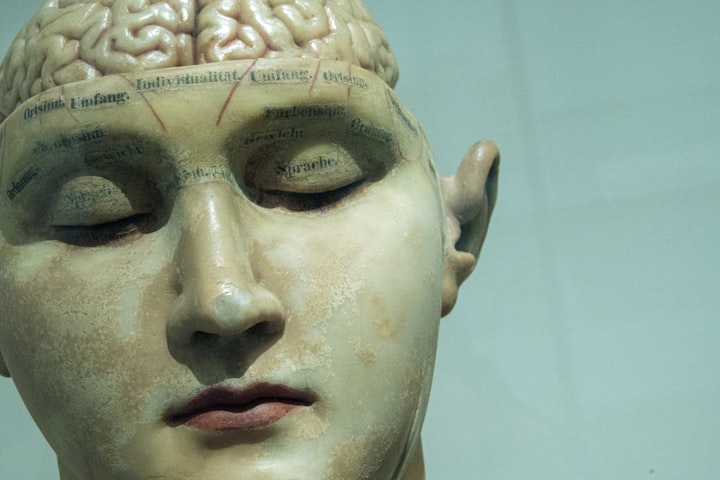Why Does The Lack Of Love Hurt So Much
Love, like so many experiences we live, has a strong impact on our lives. When love is reciprocal we feel the happiest people on earth.

When they abandon us, the lack of love makes us feel bad, very bad. I will try to explain what happens in our brain when there is a break and you will understand much better everything that happens to you.
Why Is A Break-Up So Painful?
Studies have been done using functional magnetic resonance imaging to see what happens inside the brains of three types of people:
- Those who acknowledge being in love .
- Those who have just suffered a love break.
- Those who, after more than 10 years of relationship, confess that they are still in love .
What Does A Brain In Love Looks Like?
Romantic love is not a Western invention as some claim, in fact anthropologists have found evidence of romantic love in 170 societies.
This already gives us clues that falling in love is something our brain seems genetically and biologically prepared for.
But love is not always a happy experience, sometimes we deeply love someone who rejects us or just the opposite, we reject someone who does love us.
To better understand why it hurts so much to be unloved and what happens in the brain when you are left, I will first tell you what a brain in love looks like.
Perhaps you have heard of neurotransmitters. They are chemicals found inside our brains that help our neurons communicate with each other. They are responsible for our thoughts, feelings, and actions.
Each neurotransmitter is related to a different function and is found in greater quantity in a different region of the brain.
There are three major changes occurring in your brain that are behind how you feel right now.
The 3 Main Changes In Your Brain After The Break

1. Dopamine And Love
One of these neurotransmitters is dopamine. Dopamine has a stimulating effect on the brain and we find it mainly in the gratification system or pleasure, in the most primitive parts of your brain.
This "department" is in charge of regulating our desires and our motivations, of deciding where we put the focus of our attention and of activating the mechanism of searching for everything we think we need to be well.
In fact, romantic love makes this gratification system work 100% and makes you feel as you have surely experienced before.
Totally invaded by a very intense feeling of love, by an obsession that makes you think only of the person you have fallen in love with, with all your desires focused on one person... Does this sound true to you?
What happens when you are rejected is that the obsession gets worse instead of stopping. What you most desire is to stop loving this person who doesn't love you but your brain is stubborn to set in motion the same areas of the brain that are activated when falling in love is present and the love and pain are very, very intense.
And that is when the typical negative thoughts of platonic love or unlove appear in which we regret not being reciprocated.
In fact, it is the same thing that happens when you don't get something you want very much in any other area of your life.
It activates this part of the brain that regulates cravings, desires, motivations and the focus on which we put our attention and does not let you forget what you want.
2. The Core Of Difficult Questions
There is another part of the brain that is also activated, the nucleus accumbens, which is trying to make a profit and loss balance.
- Where was the error?
- Why didn't it work?
- What do I gain from this separation?
- What do I lose with this breakup?
It's the same part of the brain that is activated when you go out on a limb to take a chance on something that can bring you big gains or big losses.
And I don't just mean financial issues, but decisions like whether or not to move to another city, whether or not to accept that your mother-in-law will come and live with you, whether or not to send your child away to learn Spanish.
Situations where you win and lose at the same time and where making a decision is not always easy.
3. The Area Of Attachment: The Bond Remains
The third part of the brain that is set in motion is the one we associate with deep attachment to another person and is behind the outbursts that cause disaffection.
At the same time that you are impregnated by the feelings that romantic love causes, you feel a deep bond with that special person.
At the same time that you are impregnated by the feelings that romantic love causes, you feel a deep bond with that special person.
Your reward circuit, the part of the brain related to pleasure, makes you feel intense energy, intense focus, intense motivation and a willingness to take risks to get what you want.
Why does heartbreak hurt so much? Because if you are not able to put a stop to this impulse you can do many things that later, with a cooler head, you will regret.
What kind of things?
- Sending that desperate message at 4 in the morning
- Calling 20 times in one day even if you don't get an answer
- Break or delete all your photos and videos
- Blocking on all social networks
- Travel to the end of the world to find them...
The intensity can be so uncontrolled that it is the same as that behind crimes of passion.
Conclusion: Romantic Love Is Addictive

Romantic love is an impulse, an impulse that basically leads to mating with the desired partner.
It is not about looking for sex in an unbridled way, but the brain in love what it gets is that we focus all our attention and effort on one person, the desired person and chosen for procreation.
Falling in love shares many characteristics with drug addiction or any other type of addiction: you focus obsessively on one person, you beg and grovel as much as necessary, you distort reality, you would do anything to get it. It also shares two other phenomena that are typical of dependence:
- The Abstinence Syndrome
On the one hand, the breakup causes the withdrawal syndrome that leads you to relapse again and again in the process of leaving a relationship.
You decide not to call again and you call, not to see him again and you do it, not to have more sexual relations and you have them...
- Tolerance
On the other hand, tolerance. This means that the more you see the desired person, instead of feeling that your desire calms down, the opposite happens: you want to see him/her even more.
What Can You Do To Feel Better?
I am sure this is the question that worries you the most at this moment. You are living one of the most difficult moments of your life.
The feeling is that the pain you feel is strong, very strong. And the intensity of the pain can cloud you to the point where you think you'll never get over it, or that it's going to take you a very long time to feel good again.
But there is hope. The conclusions of the studies I have told you about, show us 2 fundamental facts:
- On the one hand, that falling in love does not last forever
- Second, what works to overcome a breakup is the same as what works to overcome any addiction.
So what can you do from now on to feel good?

5 Practical Tips
Give yourself permission to grieve. You have lost a relationship that was important to you. It is normal that you are sad, that you feel anguish, that you have less appetite, that you find it hard to cheer up... Accept these emotions and feelings as part of the process you are going through.
If the breakup is final, get as far away from the person you love as possible. Avoid phone calls, meetings, common places... It will make it easier for you to begin to accept that this person is no longer part of your life.
It is common for you to feel like being alone, to pick yourself up, to cry, to lick your wounds... But reserve time to let yourself be cared for, hugged and comforted by the people who do care about you. Seek their company, let go and let them support you.
Find ways to distract yourself so you can rest from obsessive and repetitive thoughts. Sport and physical activity are great allies at this time. Go for a walk, run, dance, play... Not only will you occupy your mind but you will find it easier to rest.
A great way to soothe the discomfort is to use guided meditations to calm your mind, so you can stop thinking about the person you just separated from, to relieve that sharp pain.
REMEMBER THAT THE DISCOMFORT OF SEPARATION WILL NOT LAST FOREVER
About the Creator
creatorsklub
I write about tips and strategies for enhancing life. Some advice and insights because life is already to hard to be alone on it!
Enjoyed the story? Support the Creator.
Subscribe for free to receive all their stories in your feed. You could also pledge your support or give them a one-off tip, letting them know you appreciate their work.






Comments
There are no comments for this story
Be the first to respond and start the conversation.